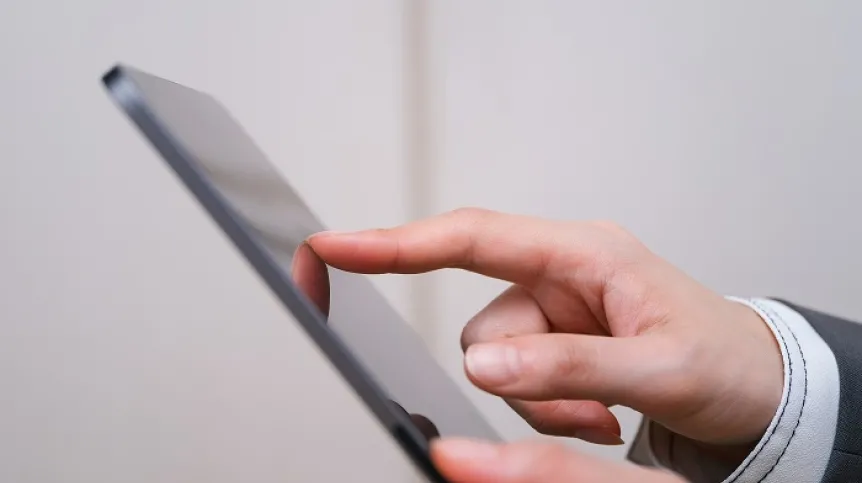
New transparent and conductive materials for use in touch screens, cheaper and more environmentally friendly than the currently used indium tin oxide, are being developed by scientists from Łukasiewicz - Institute of Microelectronics and Photonics and the Faculty of Physics at the University of Warsaw.
'Transparent electrodes are essential in any touchscreen device and our research has the potential to significantly impact the entire industry. I think that reviewers have also appreciated this aspect - our project is the only one from the Łukasiewicz Research Network selected for funding in the Opus 25 competition of the Polish National Science Centre', says project leader Dr. Michał Borysiewicz.
He adds that the electrodes must not only be transparent so that users can see the image on the screen, but also electrically conductive to effectively register touch.
Transparency is crucial for image brightness and clarity, while conductivity is essential for quick and accurate registration of the user's touch.
The new nanostructure of the material consists of metal nanoparticles in an amorphous silicon oxide matrix, which is stable even at elevated temperatures resulting from high current. Currently, only materials containing precious metals, such as ruthenium or iridium, are known, which translates into production high costs. Researchers strive to produce materials based on more common metals.
Scientists will develop models of 'candidate' metals for use in new materials, and then synthesize these materials, examine their structural and chemical properties, and describe them in terms of electrical transport.
'Thanks to the magnetron sputtering technique in which we specialise, we can create thin layers of complex materials without the need to synthesise nanoparticles and mix them with silicon dioxide. So far, it has been a very complicated and long process. Now it will be significantly simplified', says Dr. Borysiewicz.
The microstructure of the new materials will be imaged using atomic probe tomography (APT). This method produces 3D images of the interior of the material with atomic resolution. This is necessary to understand the properties of materials in which there are nanoparticles of another material - in this case, a metal - in the matrix of one material. Accurate description of the surface of nanoparticles will allow to develop a realistic description of the mechanisms of current flow in new materials. APT measurements will be performed by Dr. Torben Boll from Karlsruhe Institut für Technologie in Germany.
Since the tested materials are conductive and their structure is very unusual, the project will involve advanced measurements of electron transport properties. These activities will be led by Dr. Marta Gryglas-Borysiewicz from the Faculty of Physics of the University of Warsaw, an expert in transport measurements of 'difficult' materials.
The results of structural and transport research will contribute to the computational work conducted by Professor Jacek Majewski from the Faculty of Physics of the University of Warsaw. They are crucial for using these materials as transparent electrodes. Indium tin oxide is a standard in touch screens, but indium mining involves ethical and environmental problems. Therefore, scientists are looking for cheaper and less problematic metals that could replace indium in transparent electrodes in touch screens thanks to nanotechnology. (PAP)
PAP - Science in Poland
kol/ bar/ kap/
tr. RL













